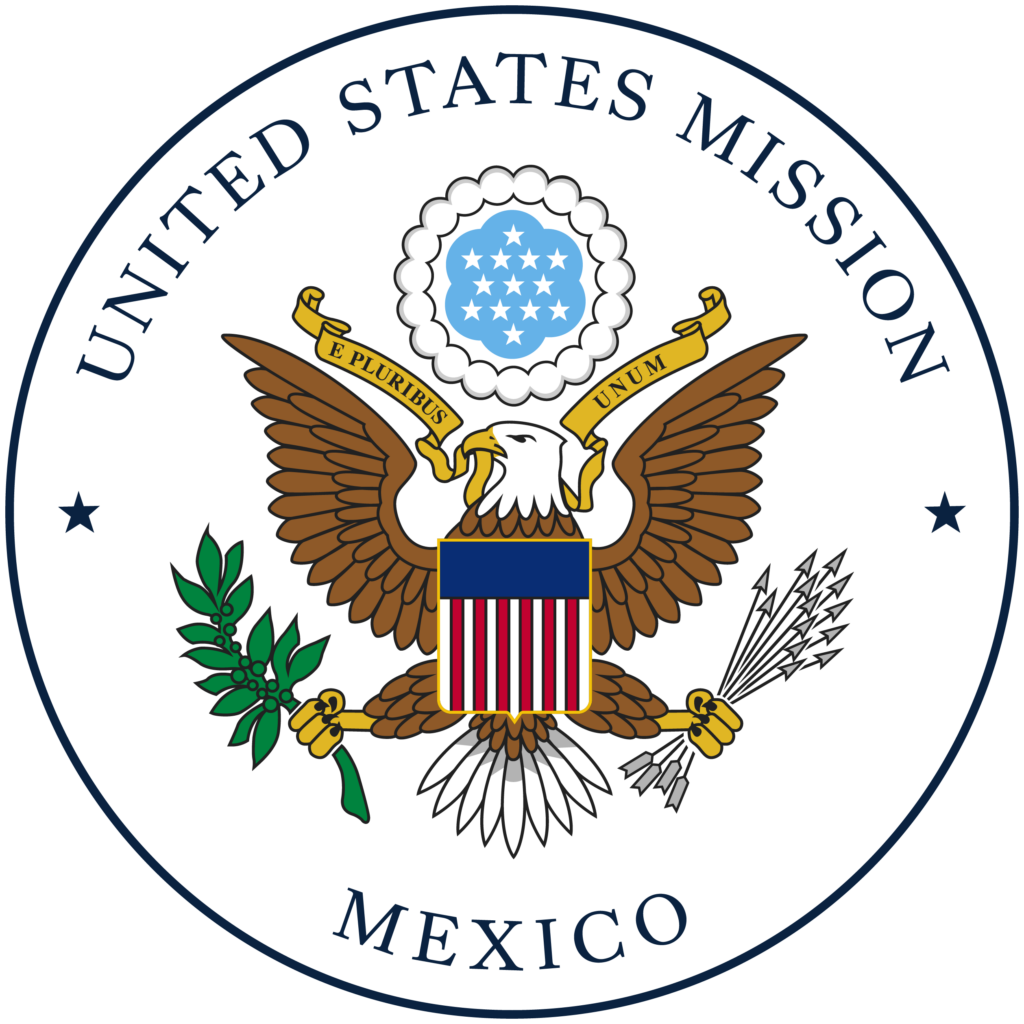New U.S. Consulate General Hermosillo Project
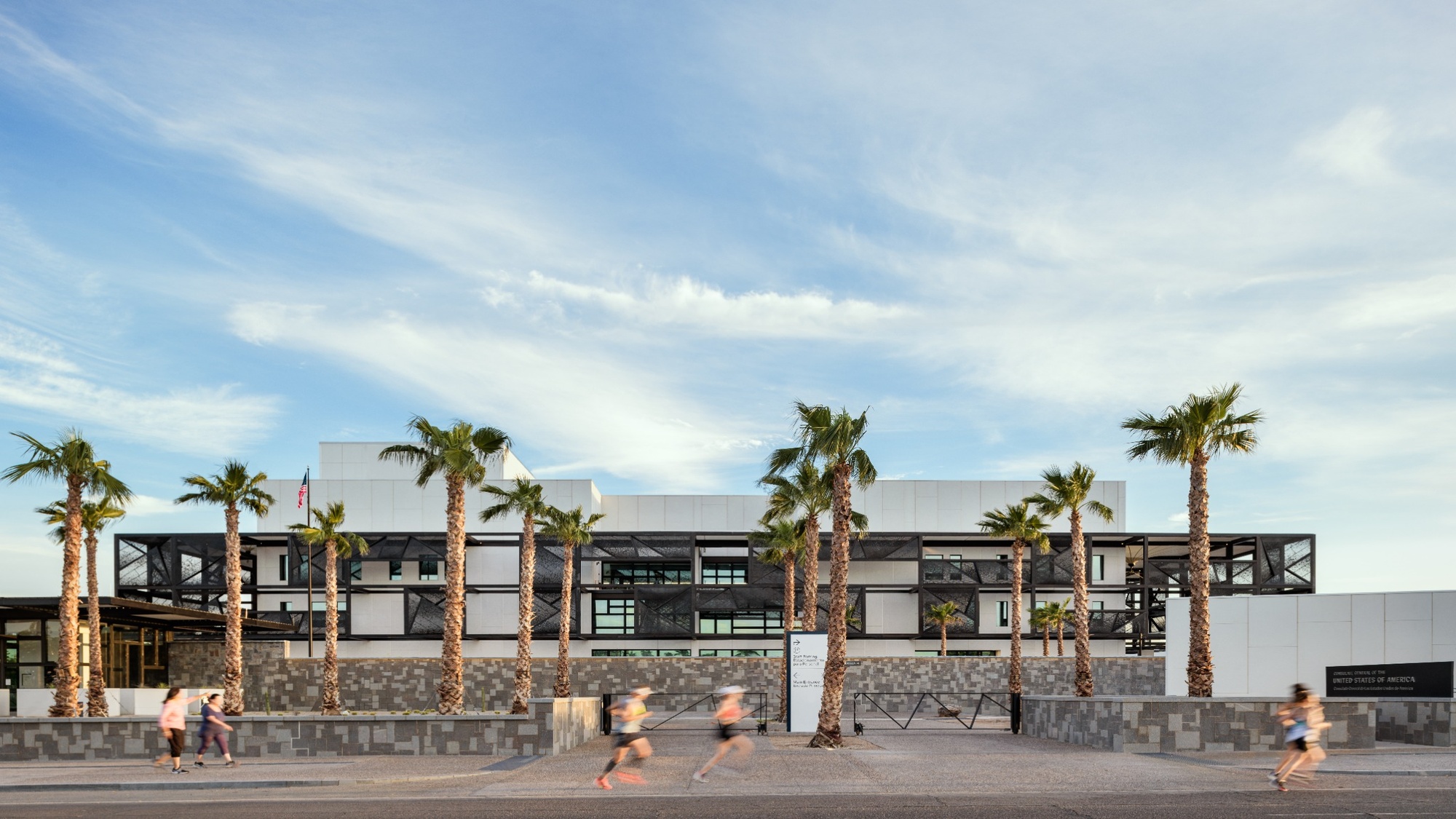
The United States and Mexico have a consequential bilateral relationship, directly impacting the everyday lives of millions of U.S. and Mexican citizens, whether through trade, joint security, or tourism. Within similar timeframes, the U.S. Department of State Bureau of Overseas Buildings Operations undertook five major builds across Mexico: four new consulate generals in Hermosillo, Guadalajara, Merida, and Nogales, and a new embassy in Mexico City. These effective facilities make the U.S. stronger, safer, and more prosperous.
Project Overview
Richärd | Kennedy Architects
Design Architect
Page
Architect of Record
BL Harbert International
General Contractor
7.9 acres
Site Size
$230 million
Project Budget
$40 million
Estimated Local Investment
Among the Mission Mexico new facilities, the new U.S. Consulate General Hermosillo is an important physical representation of the long-term commitment to the U.S.- Mexico relationship and a permanent presence in the region.
Nestled in northwest Mexico’s state of Sonora, Hermosillo stands as both the economic and political hub of the region. A shared culture, geography, and a closely linked history mean that Hermosillo and the state of Sonora have much in common with Arizona. The name of the city in Spanish signifies “pretty little place.” Although the city retains its charm, Hermosillo is quickly becoming a thriving metropolis as new investors come to the city to take advantage of the highly educated workforce and proximity to major U.S. markets. Hermosillo continues to provide an exciting vision for U.S. and Mexico’s shared future: a strong regional partner with robust investment, cultural, and interpersonal ties.
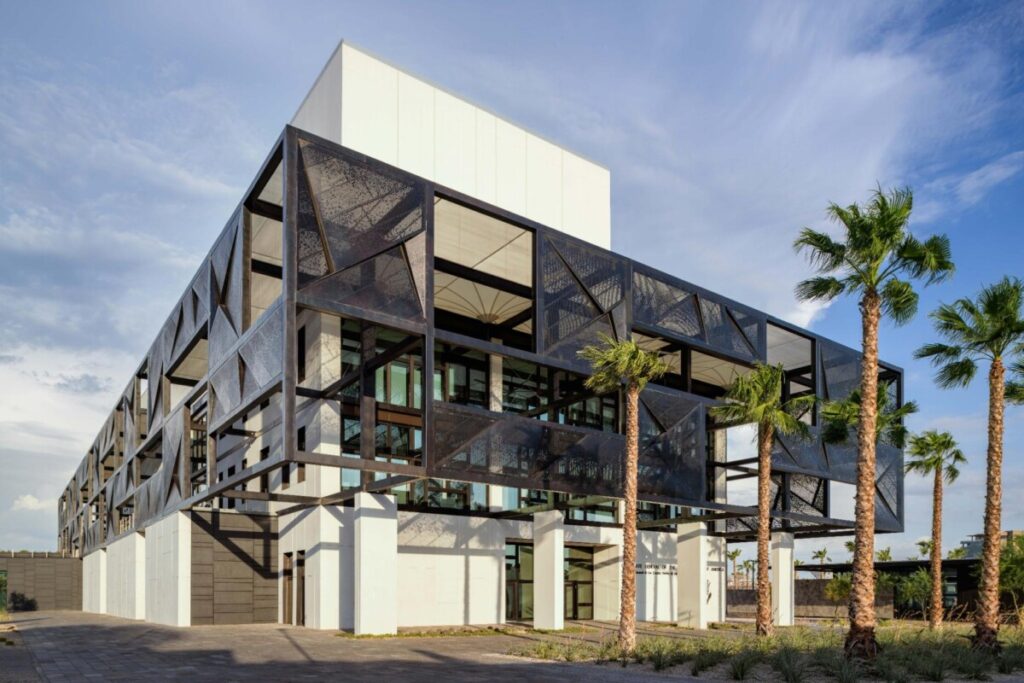
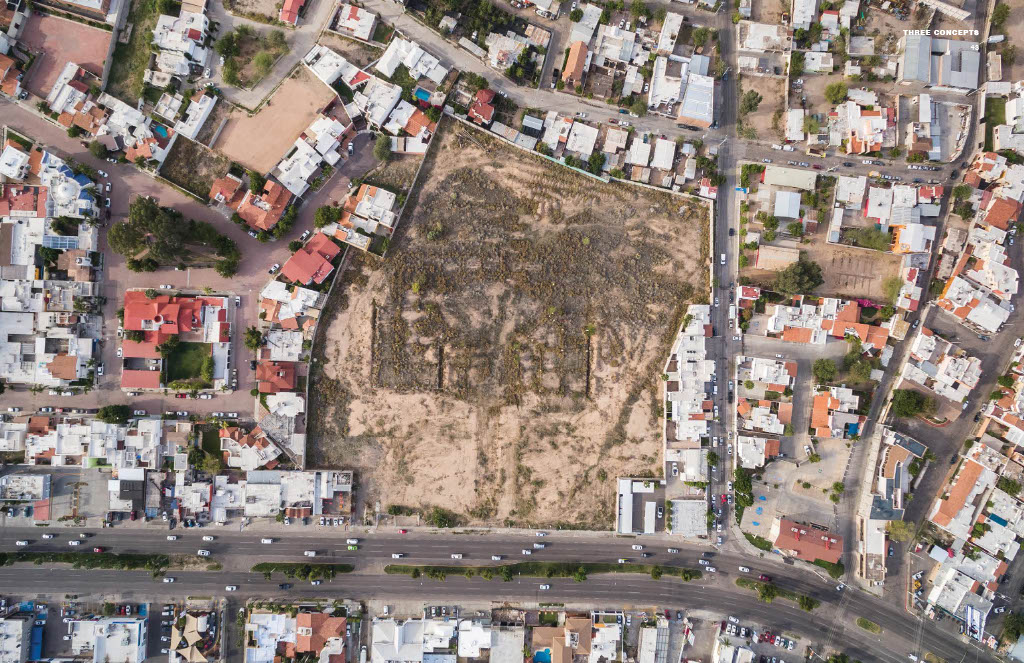
Design & Construction
The new U.S. Consulate General Hermosillo strikes the balance between national presence and cultural context, with a design that integrates diplomacy and building performance. The design’s inspiration was derived from traditional public buildings throughout Mexico: simply massed buildings with openings framed by a balcony, railing, and shade canopy, often showcasing decorative ironwork by local artisans. The design palette includes elements like white stucco, stone, iron, and glass, often featuring internal courtyards or atria for a blend of functionality and aesthetics.
The armature, a reinterpretation of the balcony as a scalar shading element, provides articulation of shade and shadow. The openings and screens within the armature provide protection from the sun, shade for the ground, and selectively edited views.
The interior spaces were design for a streamlined visitor experience and efficient workspaces for mission staff.
A workforce of U.S, local, and third-country workers supported construction.
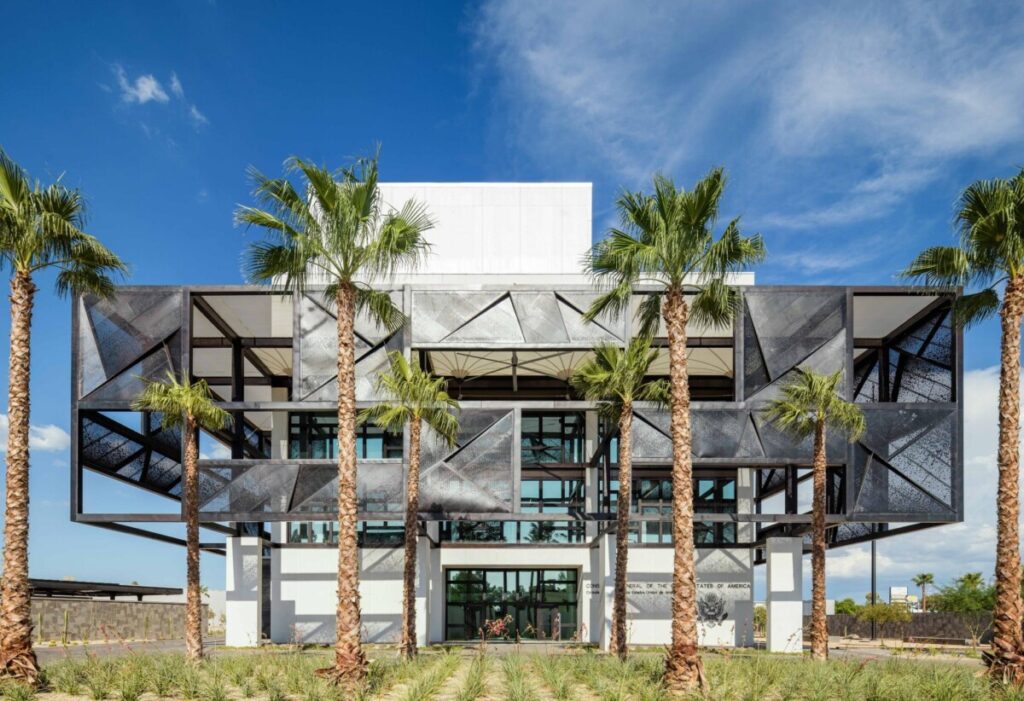
Building Performance
A model of building performance optimization, the resilient design reduces risk and operating costs associated with utilities and maintenance while enhancing natural hazards adaptation. The project incorporates utility optimization features including solar photovoltaic (PV) electrical and hot water arrays, stormwater detention and infiltration systems, as well as water-efficient drip irrigation systems utilizing stormwater reuse. Additionally, an automated building controls system, water-conserving plumbing fixtures, and strategic design elements like low heat-gain windows and shading contribute to building-energy reduction. The site design prioritizes the use of locally sourced xeric plant species to significantly decrease water consumption in the consulate’s landscape.
The project is registered with Leadership in Energy and Environmental Design (LEED®), a renowned architectural certification program that recognizes exemplary building strategies and practices, with a minimum goal of achieving Silver certification.
Arts & Cultural Heritage
The permanent art collection curated by OBO’s Office of Art in Embassies encompasses a diverse range of artistic media such as painting, photography, ceramics, textiles, and sculptures created by artists from both the United States and Mexico. Through site-specific commissions, the collection reflects a deep understanding of the richness and interconnectedness of U.S., Mexican, and Mexican-American cultural heritage.
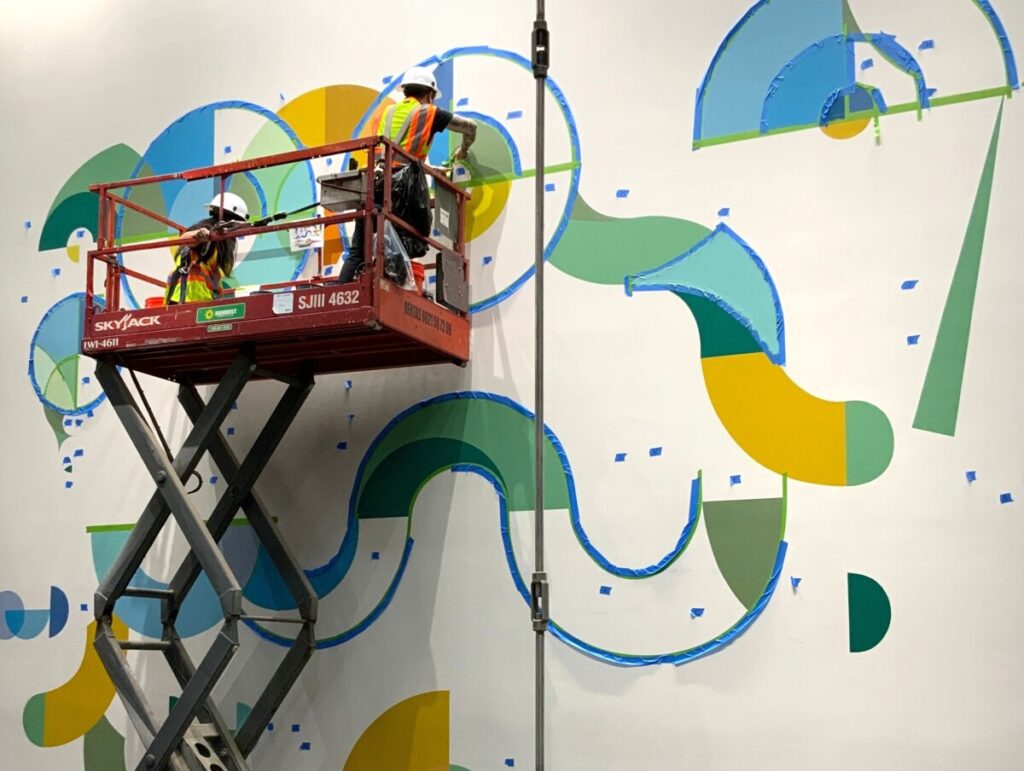
Press
- The U.S. Department of State Celebrates the Ribbon-Cutting of the New U.S. Consulate Hermosillo and the Dedication of the New U.S. Consulate Nogales – United States Department of State
- Ceremony celebrates new consulate in Mexico – State Magazine
- The Department of State Breaks Ground on the New U.S. Consulate General in Hermosillo, Mexico – United States Department of State
- Building Diplomacy – State Magazine
